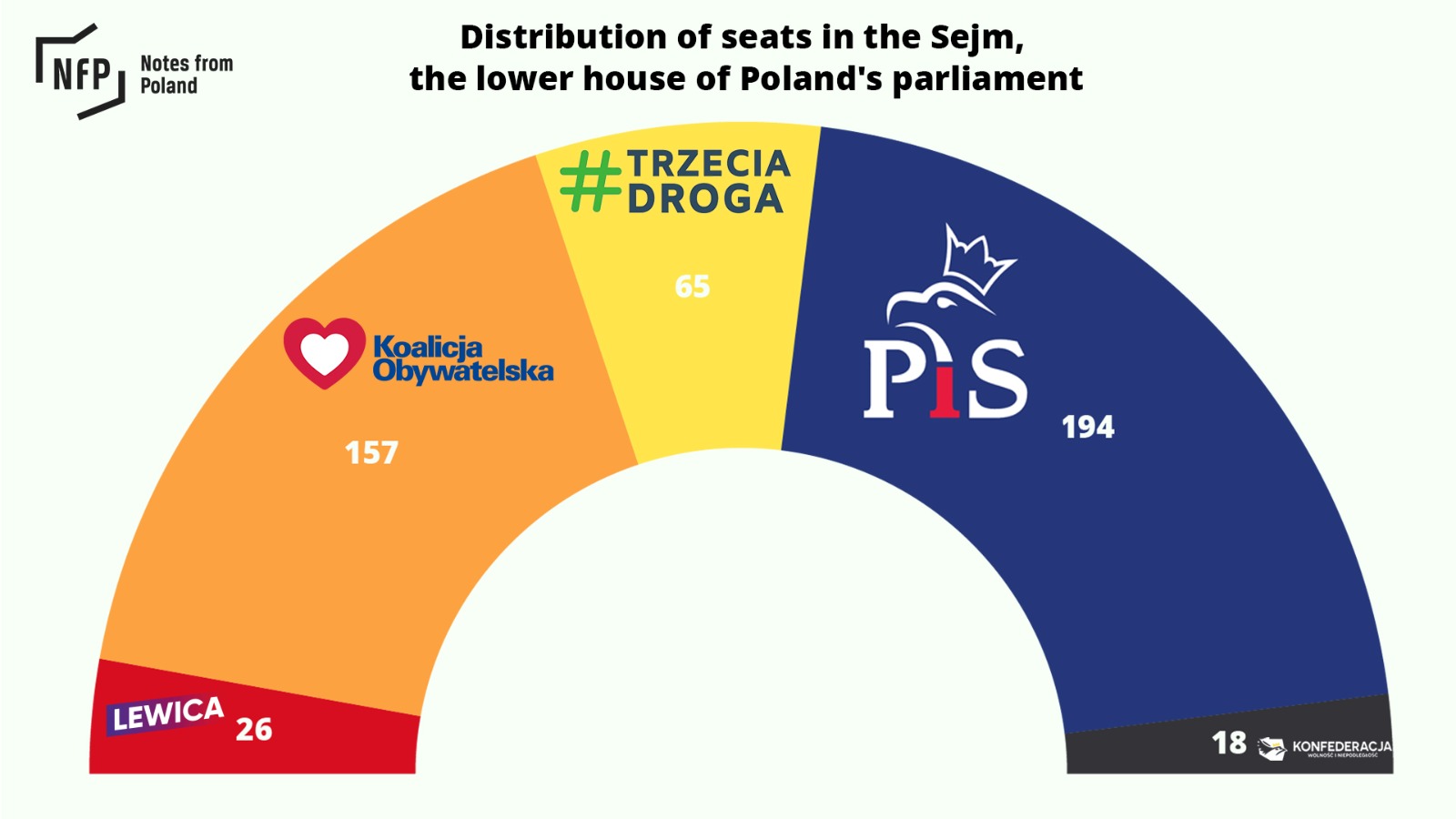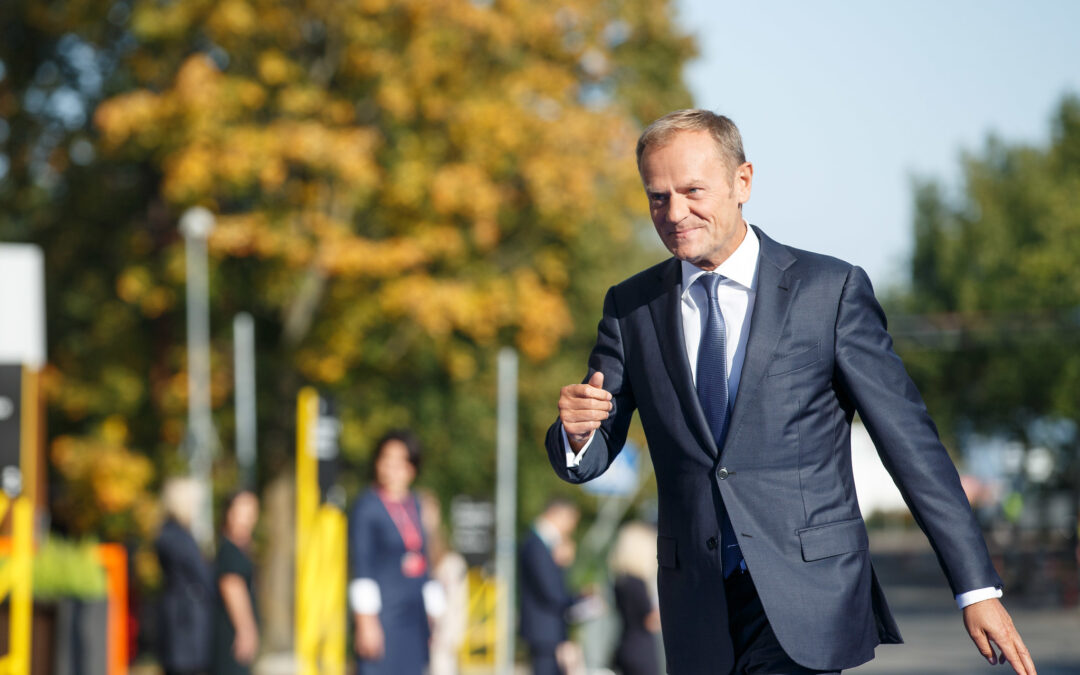Donald Tusk has declared that the opposition is “ready to govern” following the announcement of Poland’s election results, which show the ruling party losing its majority and the opposition able to form a coalition government.
He has called on President Andrzej Duda – whose role it is now to call the first sitting of the new parliament and to nominate a candidate as prime minister – to act as quickly as possible. There remains uncertainty over whether Duda will give the ruling party or opposition the first opportunity to form a government.
Apel @DonaldTusk do Prezydenta Dudy pic.twitter.com/6IbX4a6g6Q
— PlatformaObywatelska (@Platforma_org) October 17, 2023
“I am making a passionate appeal to the president,” said Tusk in a video shared by his party, Civic Platform (PO), which leads the Civic Coalition (KO) group that finished second in the elections with 31% of the vote.
“People are waiting for the first decisions that will be a consequence of these elections, so I would ask the president to make energetic and quick decisions,” he continued. “People have been waiting for change.”
“The winning democratic parties are in constant contact and are ready to take over responsibility for government in the country at any time,” declared Tusk. “But, as we know, the president is constitutionally responsible for this process of the transfer of power.”
Five conclusions from Poland's elections:
1. Tusk remains a formidable force
2. Opposition strength in diversity
3. Policies and positivity win elections
4. An uncertain future for PiS
5. The far right peaked too earlyRead our full analysis here ⬇️ https://t.co/KlH388CIXW
— Notes from Poland 🇵🇱 (@notesfrompoland) October 16, 2023
KO’s two potential coalition partners are the centre-right Third Way (Trzecia Droga), which won 14% of the vote, and The Left (Lewica), which obtained 9%.
The trio made clear before the elections that they would seek to form a government together afterwards. They have now won 248 seats between them in the 460-seat Sejm – the more powerful lower house of parliament – giving them a comfortable majority.
Meanwhile, the ruling national-conservative Law and Justice (PiS), although it finished first in the elections with 35%, only won 194 seats, meaning it cannot form a government, even if it were to ally with the far-right Confederation (Konfederacja), which won 7% of the vote and 18 seats.
Traditionally, after elections the president nominates a candidate for prime minister put forward by the largest single party. Some in PiS, including current Prime Minister Mateusz Morawiecki, have argued that PiS should therefore be given this first opportunity to form a government.

However, some opposition figures – such as Władysław Kosiniak-Kamysz, one of the leaders of Third Way – have urged Duda to instead pick a prime minister who has a realistic chance of forming a government that can win the support of a majority in parliament.
Whomever Duda picks will be tasked with forming a government, which will then present a programme to the Sejm. Should a majority of MPs vote in favour of that government, it will remain in place. If not, then the Sejm has a chance to nominate its own prime ministerial candidate and the process is repeated.
Duda – who is a former member of PiS and has been an ally of the PiS government – has as yet not offered any suggestion as to whom he will nominate as prime minister.
Today, he attended a ceremony in the garden of the presidential palace at which he planted a tree in honour of a Polish family murdered by the Germans during World War Two for sheltering Jews in their home.

Notes from Poland is run by a small editorial team and published by an independent, non-profit foundation that is funded through donations from our readers. We cannot do what we do without your support.
Main image credit: Raul Mee (EU2017EE) (under CC BY 2.0)

Daniel Tilles is editor-in-chief of Notes from Poland. He has written on Polish affairs for a wide range of publications, including Foreign Policy, POLITICO Europe, EUobserver and Dziennik Gazeta Prawna.



















